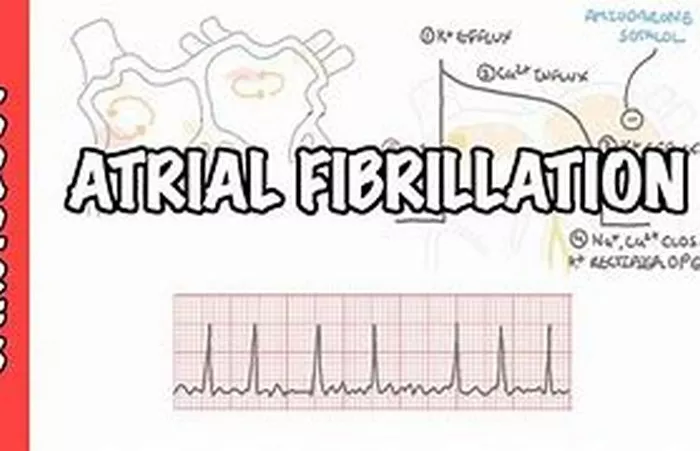Atrial fibrillation (AFib) stands as a formidable challenge in the realm of cardiac health, affecting millions worldwide. It’s a condition characterized by an irregular and often rapid heart rate that can lead to blood clots, stroke, heart failure, and other heart-related complications. The question at the heart of many patient and practitioner dialogues is: “Will atrial fibrillation go away?” This article delves into the complexities of AFib, exploring its causes, treatment options, and the realistic possibilities for remission or cure.
Understanding Atrial Fibrillation
Atrial fibrillation is more than just an irregular heartbeat. It’s the result of disorganized electrical signals in the heart’s upper chambers (atria), leading to a discordant rhythm that affects the heart’s ability to pump efficiently. Symptoms can range from nonexistent to severe and may include palpitations, shortness of breath, fatigue, or weakness. The risk of developing AFib increases with age, and it’s often seen in individuals with heart disease, high blood pressure, or diabetes, among other conditions.
Causes and Risk Factors
Identifying the root causes and risk factors of AFib is crucial for prevention and treatment. This section would explore the intricacies of how high blood pressure, heart disease, thyroid problems, and lifestyle factors contribute to the development of atrial fibrillation. Understanding these elements is the first step in addressing the condition effectively.
Diagnostic Approaches
Early detection of AFib is pivotal. This subsection would cover the various diagnostic tools at the disposal of healthcare professionals, from electrocardiograms (ECGs) to more advanced imaging techniques, outlining how each method contributes to a comprehensive evaluation of the patient’s heart rhythm and function.
Treatment Modalities
The management of atrial fibrillation is multifaceted, involving medication, lifestyle adjustments, and possibly surgical interventions. The goal is to control the heart rate, prevent clots, and normalize rhythm as much as possible.
Medications
Medications play a central role in the management of AFib. This includes drugs to control heart rate and rhythm, as well as anticoagulants to prevent blood clots. The choice of medication often depends on the individual’s specific condition and the presence of other health issues.
Lifestyle Changes
Lifestyle adjustments can significantly impact the management of AFib. This section would delve into the importance of a heart-healthy diet, regular exercise, and the avoidance of AFib triggers, such as caffeine and alcohol. The role of weight management and smoking cessation would also be highlighted.
Interventional and Surgical Procedures
For some patients, medication and lifestyle changes may not be enough. Procedures like catheter ablation and surgical maze procedures are options for those with more persistent forms of AFib. This subsection would describe these procedures in detail, including what patients can expect and the potential risks and benefits.
The Road to Remission
While some forms of atrial fibrillation can be temporary, others may require long-term management. This section would explore the concept of “remission” in AFib, discussing the factors that influence the likelihood of its occurrence, such as the duration of AFib, underlying causes, and the effectiveness of treatment strategies.
Living with AFib
For many, AFib is a chronic condition, but it doesn’t have to dictate the quality of life. This subsection would offer insights into the daily management of AFib, including monitoring, medication adherence, and staying active and engaged with a supportive healthcare team.
Emerging Treatments and Research
The future holds promise for AFib patients, with ongoing research and emerging treatments aiming to offer more effective management and possibly cure the condition. Innovations in medical technology, alongside advances in our understanding of the heart’s electrical system, could revolutionize AFib care.
Conclusion
Atrial fibrillation presents a complex challenge, but with advances in medical science and a comprehensive approach to treatment, many individuals can manage the condition effectively or even experience periods of remission. The journey with AFib is highly individual, requiring a tailored approach that considers the unique circumstances of each patient. While the question, “Will atrial fibrillation go away?” cannot be answered with a definitive yes or no, the evolving landscape of AFib treatment offers hope and the possibility of a brighter, healthier future.

